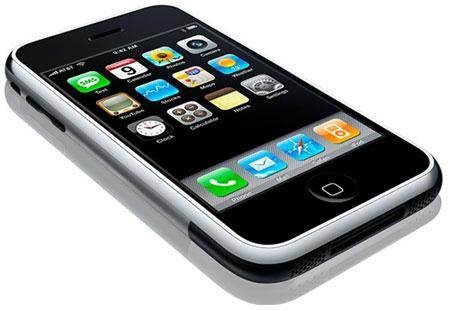Ten years ago today, Steve Jobs introduced a technology that would actually exceed his own grandiose hype. Every new product Jobs introduced he described as “life-changing” or “revolutionary,” and the iPhone was no different. But this time Jobs was correct, and probably even understated: the iPhone really did change the world. There were smartphones before the iPhone (I had a Palm Pilot!), but Apple’s entry into the smartphone industry obliterated past attempts at “smart” phones. I still remember the “oohs” and “aahs” when Jobs scrolled up the screen with his finger and the screen “bounced.” We laugh at that now, but it really was amazing to witness for the first time.
Having a powerful, Internet-connected computer in your pocket of course has changed the way we live. Sometimes I try to explain to my kids what life was like before cell phones, and before smartphones particularly. My teens who are old enough to drive are especially amazed that we were able to get anywhere without a GPS-based mapping system in our pockets. “How did you know where to go!?!” And of course, just having a phone with you at all times solves all sorts of problems (we just watched “Home Alone” and I chuckled when I realized the whole premise of the movie falls apart if cell phones were prevalent then).
But what was truly revolutionary about the iPhone – and what made it so successful – was the App Store. When I used my Palm Pilot, not only was it clunky to use, but it was limited in what it could do, for only Palm software could run on it. But Jobs opened the iPhone to everyone, and thus the iPhone had the potential to do things even a visionary like Jobs couldn’t even dream of. Case in point: digital payment systems.
Apple is trying to roll out ApplePay, with limited success, and other tech companies are also trying to make payment systems embedded in our phones. But where payments systems and smartphones can really shine is with cryptocurrencies like Bitcoin or Dash, which are fully digital. With legacy payment systems, Apple and other companies are trying to shoehorn antiquated, card-based systems into the digital universe. Cryptocurrencies, on the other hand, live and breath on the internet, and so fit perfectly into the smartphone world.
Yet workable cryptocurrencies didn’t even exist when the iPhone was introduced, and so Jobs couldn’t forsee them being available on his creation back in 2007. And the relationship works both ways: if the iPhone didn’t exist, I’m not sure if Bitcoin and cryptocurrencies would have taken off. After all, Satoshi Nakamoto originally presented Bitcoin has an “electronic cash system,” but who would want to pay for things when saddled to PCs and laptops? Without the potential for using cryptos outside the walls of our larger devices, I doubt they would have caught on as they have.
Happy Birthday, iPhone! You have impacted the world far more than anyone could have guessed when you were first introduced, and I have a feeling your impact is only going to grow as you get older.

